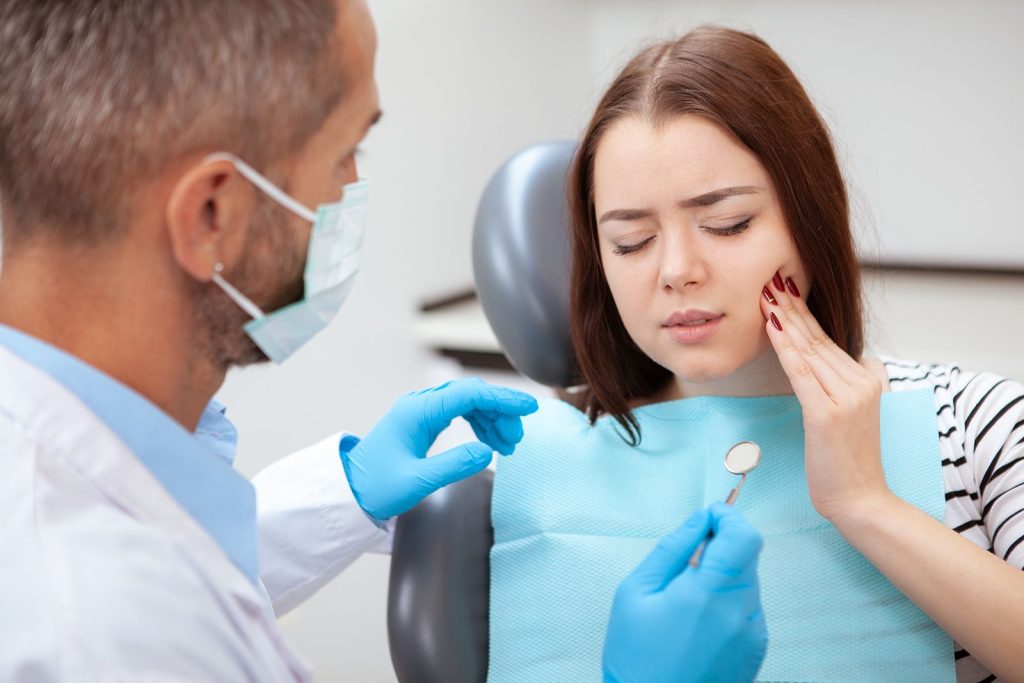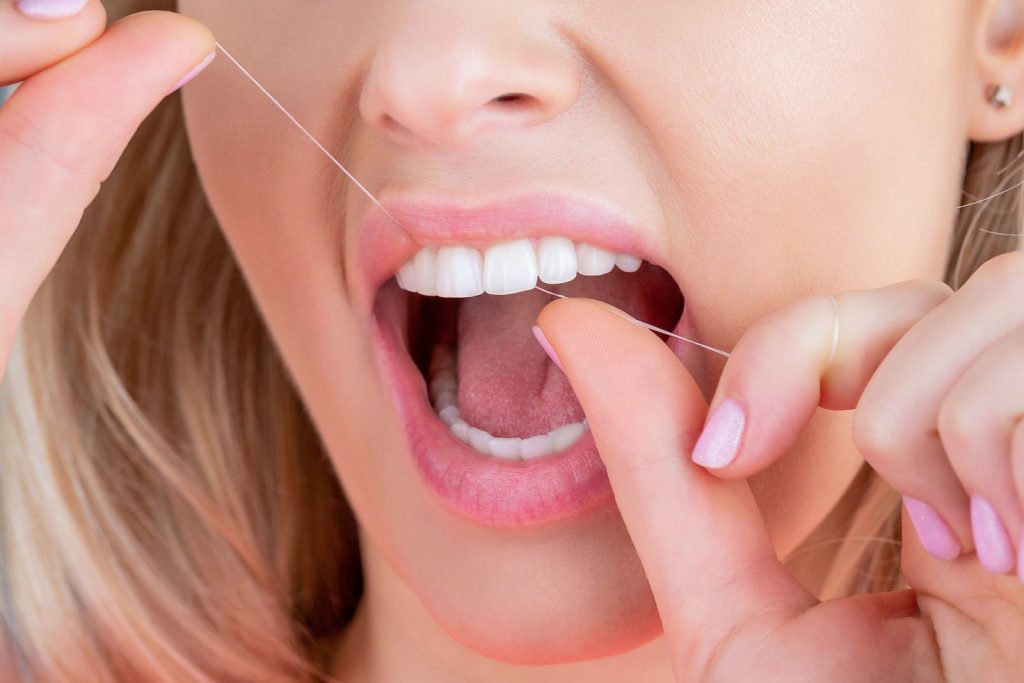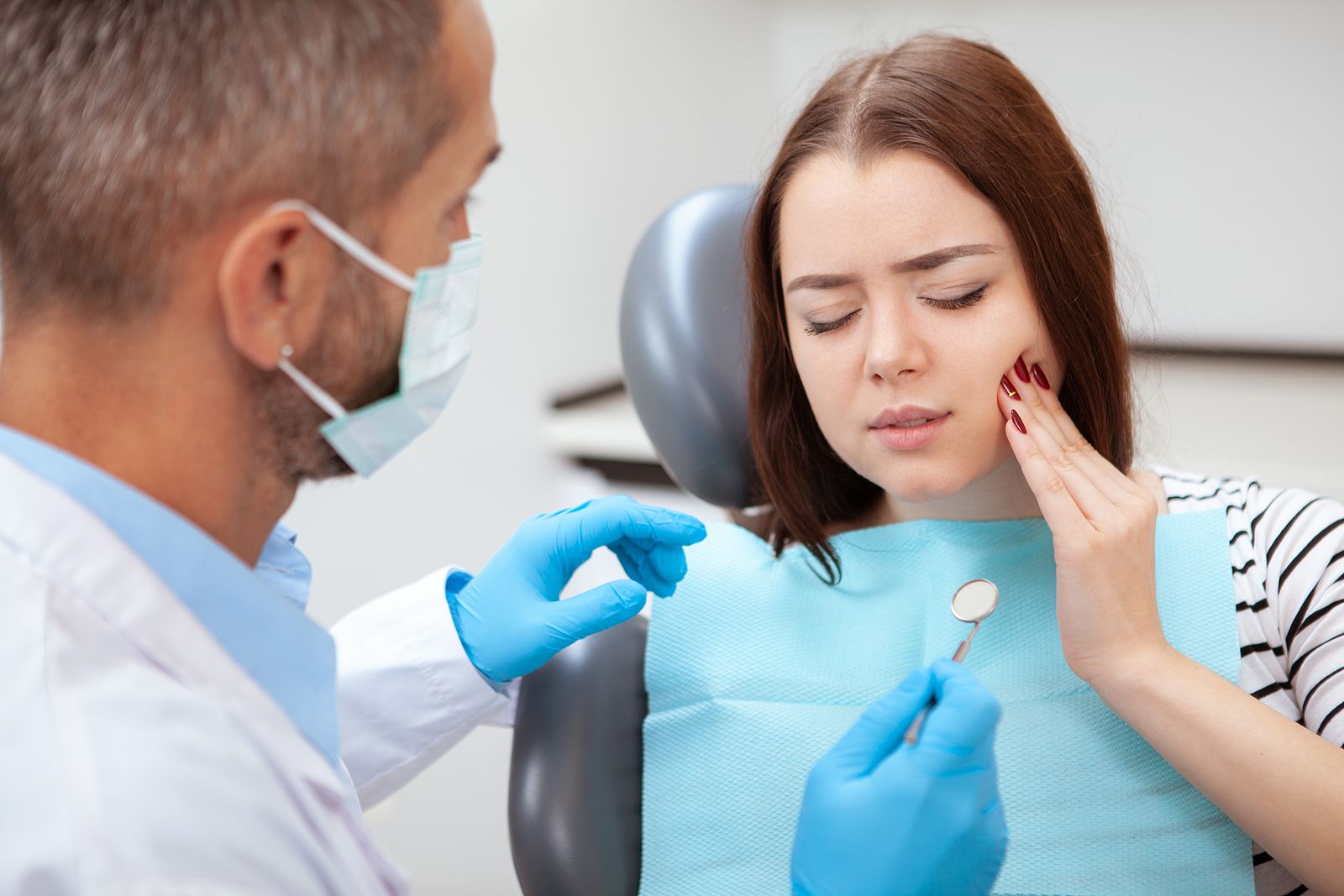Dental emergencies can happen when you least expect them, causing pain and stress. If they aren’t dealt with quickly, they can lead to more severe problems.
In this article, our emergency dentist in Armadale will discuss the most common dental emergencies.

What are dental emergencies?
The following details 10 of the most common dental emergencies and what usually causes them.
Understanding these common issues can help you recognise the early signs and take preventative measures before issues escalate.
1. Toothache
Toothaches can be dangerous and are one of the most common dental emergencies. They can be a real pain – literally!
Usually, they happen because of tooth decay, infections, or damaged dental work.
If you get a toothache emergency that doesn’t go away with painkillers, or it gets worse, it’s time to see a dentist!
2. Chipped or broken tooth
Breaking a tooth isn’t fun, and it often happens when you bite into something hard or take a hit to the mouth. Maybe you had an accident, or perhaps you grind your teeth at night.
The problem with a chipped tooth is that it can leave sharp edges that can hurt your gums or tongue. If you chip or break a tooth, get to a dentist to prevent further damage or infection.
3. Knocked-out tooth
A tooth can get completely knocked out, usually from sports, a fall, or any sudden impact.
If it happens, don’t panic. If you can, find the tooth and keep it moist, ideally in milk. Next, get to a dentist, fast!
The quicker you act, the better the chance of saving the tooth.
4. Loose or wobbly tooth
If a tooth feels like it’s about to fall out, that’s definitely a dental emergency. Loose teeth can be caused by gum disease, accidents, or severe decay.
If it’s gum disease, the tooth might be loose because the bone around it is weak. Either way, you should see a dentist right away to find out what’s going on.
5. Dental abscess
An abscess is a pocket of pus caused by a bacterial infection. It’s not only painful, but it can also lead to serious complications if you don’t treat it. You might notice swelling, fever, or a bad taste in your mouth.
If you suspect an abscess, you probably need an immediate dental treatment.
6. Lost filling or crown
Fillings and crowns can fall out for a variety of reasons – age, wear and tear, or even just biting on something hard.
When that happens, the inner part of the tooth is exposed, which can lead to further pain or decay.
If you lose a filling or crown, avoid chewing on that side of your mouth and get to a dentist to get it fixed.
7. Bleeding gums
It’s common for gums to bleed a little after brushing too hard. But if they bleed a lot or often, it could be a sign of gum disease or another health problem.
If this happens, it’s best to see a dentist promptly. They can check if it’s just a case of over-enthusiastic brushing or something more serious.
8. Object stuck between teeth
Sometimes food or other objects can get stuck between your teeth, and it’s super uncomfortable.
If you can’t get it out with dental floss or a toothpick, don’t use anything sharp – as this can often lead to more harm! If something is really wedged, a dentist can help.
9. Wisdom tooth pain
Emerging wisdom teeth can cause considerable discomfort, including pain, swelling, and difficulty chewing.
This discomfort often arises as the wisdom teeth attempt to erupt through the gums, exerting pressure on surrounding tissues.
When the pain becomes severe or persistent, extraction is often necessary. This is to alleviate symptoms and prevent potential complications such as infection or damage to neighbouring teeth.
10. Jaw pain or lockjaw
Jaw pain or lockjaw can be caused by a sudden hit to the jaw or a temporomandibular joint (TMJ) disorder. Grinding your teeth can also lead to jaw pain.
If you have trouble opening or closing your mouth, or if you hear popping sounds when you move your jaw, it’s a good idea to see a dentist.

How to prevent dental emergencies?
- Brush your teeth twice a day and floss every day to keep your teeth and gums healthy
- Visit the dentist regularly for check-ups and cleans
- Wear a mouthguard if you play sports or do activities where you could get hit in the face
- Don’t chew on hard things like ice or hard candy, which can break your teeth
- If you grind your teeth at night, talk to your dentist about getting a mouthguard
- Avoid using your teeth to open things or cut tape
Contact an emergency dentist in Armadale
If you are experiencing any tooth emergencies, contact a dentist right away!
Remember, any dental problem that causes pain is considered an emergency and requires immediate attention.
Our emergency dentist in Armadale is here to ensure you receive the care you need, right when you need it, even on weekends! Don’t wait – call us on (03) 9509 1500 or book an emergency appointment as soon as you notice any of the signs of a dental emergency!

